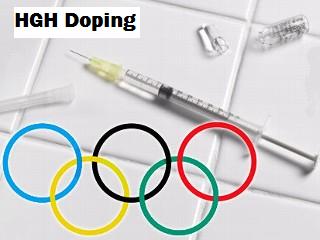The use of steroids in sports is by no means a new or obscure phenomenon, and has been happening at the highest levels of competition at least since the mid-twentieth century. However, as the use of steroids has persisted, the methods for detecting steroid use have also advanced. This is why athletes who do not mind using performance-enhancing substances have been turning to human growth hormone, or HGH.
Human growth hormone is a substance secreted by the body. Despite its name, it actually does much more than ensure that a child’s body grows into adulthood. It actually maintains skin and hair in good condition, strengthens muscles, and boosts immunity. The body tends to produce less HGH as time passes, which is why HGH drops are linked to the aging process. As such, human growth hormone or HGH has also been marketed as a chemical rejuvenator for persons in middle age or in their senior years. There is even a market for so-called HGH supplements, pills that, while not actually containing HGH or a substance that mimics it, purportedly stimulate the body to produce more HGH.

HGH Doping
However, artificially increasing the body’s levels of HGH has also been linked to higher risks of developing cancer. This risk is particularly relevant for athletes (who tend to be rather young), as long-term or even short-term use of HGH has more time to take effect on the body. People using HGH towards the end of their life span may feel less vulnerable given that they may pass away before they experience significant side effects.
Since at least 2004, testing for HGH has been part of the routine of the Olympic Games. At first, the testing methods used could only detect the presence of HGH used within three days or less. Later, however, the World Anti-Doping Agency (WADA) approved the use of a more advanced method that would detect HGH up to three weeks before the actual testing. This can also be more convenient for athletes who get tested, since smaller samples of urine are necessary, and authorities do not need to keep obtaining more urine in order to do comprehensive tests.
Another important feature of the London Olympics testing arrangements is that urine samples are stored, so that, years after the games, samples can be tested again if evidence surfaces that some kind of prohibited substance slipped past the 2012 tests. Thus, even if an athlete had access to a steroid, type of HGH, or other performance-enhancing substance that was not recognized at the time, he or she may still be found out and penalized years later.
Unsurprisingly, these strict testing methods have been publicized well before the upcoming games. Widespread knowledge of stricter testing may serve to deter people from even attempting to use prohibited substances before and during the games.
Steroids may still be a major concern for sports authorities at the Olympics and other competitions, but clearly, athletes are finding other options. Sports authorities recognize this fact, and take it into account when enforcing policies to control the use of performance-enhancing substances. The evolution of testing for HGH, and more and more other substances besides, is evidence of the amount of devotion authorities give to obtaining drug-free competition results.
Even so, given the inherent limits of the testing process and the difficulty of doing enough testing to truly sweep the Olympic teams, it is likely that the Olympics cannot be made drug-free. Informed audience members will always suspect that winners have done well partly because they had a pharmaceutical advantage. This state of affairs may open up space for more debate, or even sweeping policy changes, in how the Olympics and host countries deal with performance-enhancing substances.
Legal Anti Aging HGH Supplements












sports is meant to be a game of strength and skills not of a ‘pharmaceutical advantage’. this article is truly a great one that open up our eyes to the many ugly things that others may have discreetly hidden.
now, i’ll be one of those who doubt whther a wqin is a win or it is made possible by a drug. seems like i’m losing interest in watching sports competitions